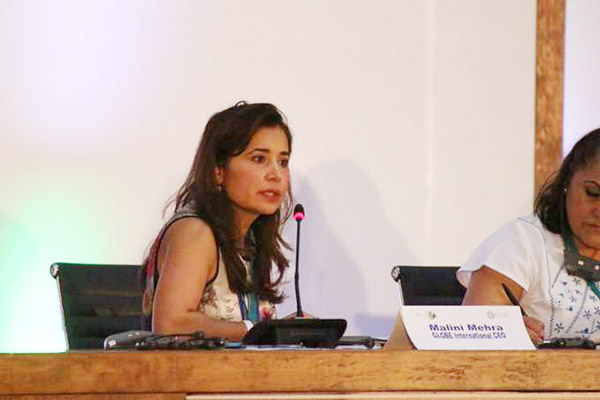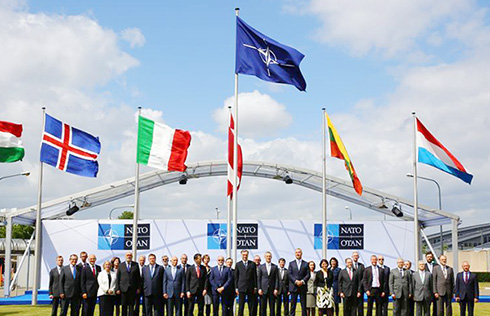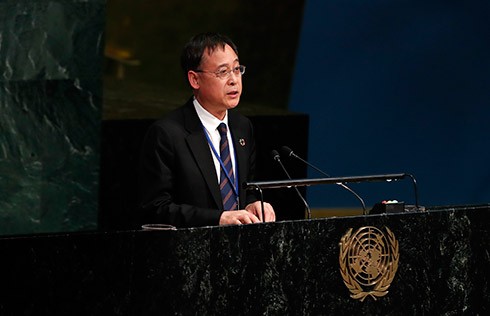Beating the norm
Few prizes can beat the Nobel for generosity.
The Global Challenges Prize, giving $5 million to its winner, is one of them.
The prize, given by the Global Challenges Foundation, is seeking creative solutions for global catastrophic risks, such as climate change, weapons of mass destruction and extreme poverty.
 |
|
Malini Mehra speaks at United Nations Biodiversity Convention in Cancun, Mexico in this Dec 2016 file photo. [Photo provided to chinadaily.com.cn] |
Malini Mehra, the Sweden-based non-profit foundation's ambassador who was promoting the prize in her latest trip to Beijing, expects a lot from the candidates. The ideal winner should be a true global citizen who keeps a close eye on global concerns and is also bold and fearless while addressing those concerns.
More than 18,000 people from 180 countries across the world have expressed interest, according to Mehra. Despite the seemingly wide interest, only 211 entries were received, meaning roughly one percent of those interested actually submitted their ideas.
Two entries are from China, in contrast to 12 from its neighboring country, India.
The application period closes at the end of September.
Though quantity doesn't always guarantee quality, the small pool of candidates still shows a lack of public concern on global affairs.
It's not the general public to blame. Social problems within the border already demand prime attention; global issues, though some of them are catastrophic, can only come in second.
Take China, for example. Health-threatening air pollution, a tough job market, rising living expenses in cities and rocketing home prices, to name just a few, are already worrisome.
If you live in India, the shocking violence against women and air pollution in big cities like Delhi frequently make news headlines.
Europe is once again shadowed by terror fears after deadly attacks in Manchester and London.
The United States is preoccupied by the chaos in White House.
Then there's war-torn Syria.
As everyone is concerned about his or her own living, one might ask: Is it still possible that a globally-minded candidate will come up with an offbeat yet genuine idea and eventually win?
According to Mehra, it is. But she wants more than picking out the winner.
"The objective is not just to award prize-winning entries. The objective is to raise global awareness on big issues and to start to get engaged in dialogues with key sections of society, " she said.
She's a firm believer in collective wisdom. In all of her international career spanning 30 years, she has been pushing people from all sectors to work together.
"Resolving these questions, nobody has the answers. The government doesn't have the answers. The businesses don't have the answers. The NGOs don't. People have to start to work together, " she said. "Everybody is on the learning curve."
The prize-winning idea must show that different groups of people can work together, she insisted.
A globalist
If "globalist" sounds too pedantic, Mehra lives up to the word's definition.
She talked about Beijing like anything but a business traveler.
She'd confront you when you complain about your hobbling taxi trip: Why don't you take the subway?
She'd add the point that the city's subway system, which can be intimidatingly complicated for foreign tourists, is already handy to her.
She'd learn China's history as a multi-ethnical nation in the National Museum and conclude that China, not only the United States, also is a melting pot.
She'd roam the streets to see only two or three foreign faces and then give a well-developed analysis of China's immigration policy.
She'd nod for the Chinese capital city's battle against another ailment, air pollution.
She'd take heed of the rise of creative industry in Beijing as "many international bands come to play for a Chinese audience."
She didn't just stop over during business trips, which she has made many times to China since 1995. She spends time here. She observes. She talks to people. She thinks. She adapts. She gets to know the city, its heart and soul.
She closely followed the Belt and Road Initiative Forum that was held in Beijing on May 14-15 and studied President Xi Jinping's speech, especially the investment plans in the speech.
Which is why she pins her hope on China, which, according to her, can "exert leadership" in the climate change issue.
"So China can say, instead of renewable energy and sustainable technology should be used as the source of capital, China can say these must be used. So move from should to must."
She was right. US President Donald Trump has announced plans to pull out of the Paris climate accord, but Chinese Premier Li Keqiang reaffirmed China's stance of sticking to the accord during his trip to Brussels.
By honoring the pledge, China has to cut emissions and shift investments from fossil fuel-related industries to the clean energy sector.
When you first meet her, you would be awed about her familiarity with China and its capital city. But as you learn more about her you would find that she sees other cities around the world with the same discerning eyes.
New York, Barcelona, and of course her favorite, London, which she "could talk about for hours and hours."
She attributed it to her career of working for international organizations, including the United Nations, which has taken her to most parts of the world.
But not all the Indian women, many of whom are fighting with one of the most discriminating societies in the world, have such an opportunity.
She is an exception.




















